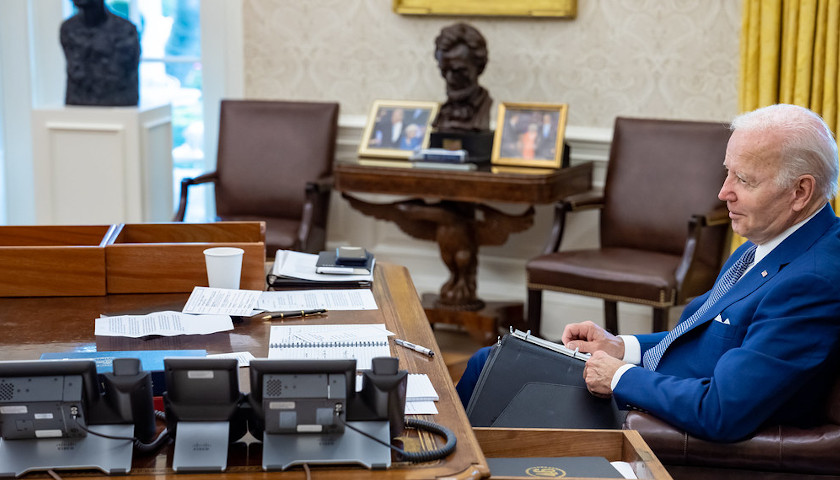by Madeleine Hubbard
President Biden on Monday issued the first veto of his presidency, blocking a measure passed last week by Congress to overturn a Labor Department rule allowing retirement plans to consider environmental, social and governance factors when making investment decisions.
The GOP-led effort received congressional passage last week in the Democrat-controlled Senate, with the White House saying it would likely get a presidential veto.
“There is extensive evidence showing that environmental, social, and governance factors can have a material impact on markets, industries, and businesses,” Biden said after issuing the veto. “But the Republican-led resolution would force retirement managers to ignore these relevant risk factors, disregarding the principles of free markets and jeopardizing the life savings of working families and retirees.”
The Senate’s 50-46 vote Wednesday came one day after the House voted 216-204 to pass it.
Supporters of the measure received the veto poorly, asserting that the Labor Department rule would enable poor industry practices and hurt Americans in the process.
State Financial Officers Foundation CEO Derek Kreifels said that “President Biden’s decision to veto makes it clear that he prioritizes a woke political agenda above bringing relief to families who are needlessly suffering under his economy.”
“Misguided ESG policies meant to force a transition to green energy will raise the cost of gasoline, natural gas, and heating oil for decades to come,” he continued. “These same measures will also impact the food supply chain, adding burdensome costs to farmers and ranchers that will inevitably be passed to consumers. Allowing retirement plans to include ESG considerations takes financial decisions out of the hands of the American people and puts progressives in charge.”
– – –
Madeleine Hubbard joined Just the News as a fast file reporter after working as an editor at Breitbart News. Hubbard previously served as the special assistant to the Assistant Secretary of Public Affairs at the U.S. Department of Health and Human Services during the first year of the COVID-19 pandemic.





